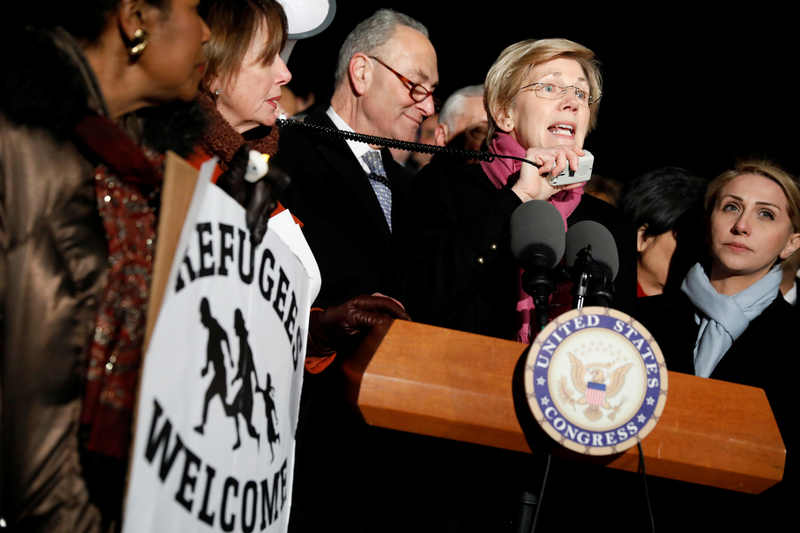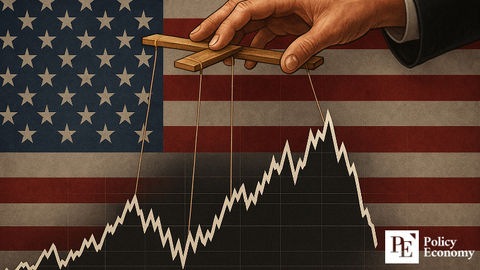Federal Judge Won’t Immediately Block Elon Musk or DOGE from Federal Data or Worker Layoffs
Input
Changed
Backlash from Democrats The White House’s Stance: A Delicate Dance The Road Ahead: What’s Next for DOGE, Musk, and the U.S. Government?
The ongoing controversy surrounding Elon Musk's involvement with DOGE (a tech company he’s advising) and the recent layoffs has sparked significant debate, particularly as it involves access to federal data and labor practices. Recently, a federal judge ruled against an immediate restraining order to block Musk’s company from accessing federal information and laying off workers. This ruling has led to a resurgence of political fallout, with many lawmakers and public figures opposing Musk’s approach, specifically the handling of layoffs, the company's access to government data, and the broader implications of his corporate influence.

Backlash from Democrats
The ruling came in the midst of mounting pressure from Democratic Attorney Generals (AGs) who were seeking a temporary restraining order (TRO) to prevent DOGE from accessing crucial federal data. These AGs claimed that Musk's involvement with DOGE, particularly given his leadership role within several high-profile companies, could lead to the mishandling of sensitive information that may endanger national security. The claim was primarily based on Musk's business track record, which includes high-profile acquisitions and controversies over privacy, data handling, and layoffs in companies like Twitter and Tesla.
The rejection of the TRO, however, has sparked significant backlash, particularly from Democratic lawmakers and public advocates who argue that the ruling allows for a corporate giant to continue unchecked and potentially jeopardize public data security. This ongoing issue presents a clear conflict between the demands of corporate efficiency and public safety, especially in light of Musk’s ambitions for furthering technological progress through various companies.

The White House’s Stance: A Delicate Dance
In a surprising twist, the White House has weighed in on the matter, asserting that while Musk is heavily involved in advising DOGE, he is legally not in charge of the company. This comment has raised eyebrows, as many political observers and business analysts have noted that in practice, Musk wields significant influence, which often goes beyond the advisory role.
The White House’s defense of Musk's non-leadership position seems to be an attempt to distance the administration from the ongoing backlash, but many see it as a weak attempt to placate both critics and Musk’s supporters. Critics argue that this statement is merely a formality, as it is well-known that Musk’s substantial stake in DOGE and his ability to move markets make him far more than a passive advisor. Furthermore, the public knows that Musk’s decisions influence significant parts of the business world, including his role in streamlining corporate operations and making key decisions for large-scale projects.
The White House may also be trying to avoid directly getting involved in the legal battles surrounding Musk’s operations, fearing that such an involvement could deepen the political division, especially as it pertains to the corporate control of federal data.
Perhaps the most controversial aspect of this whole affair is Musk’s plans for massive job cuts within DOGE, a move that has sparked outrage in both political circles and within the tech community. Musk has long been known for his push toward efficiency, often opting for severe cost-cutting measures, including laying off thousands of employees in his other ventures, such as Tesla and Twitter. Now, with DOGE, Musk is repeating this playbook, pushing for an even more aggressive downsizing in an effort to restructure the company and increase its profitability.
Job cuts, while a standard practice in corporate restructuring, have become a flashpoint for public concern. Democrats, in particular, have raised alarms about the growing wealth inequality, with some arguing that these job cuts disproportionately affect lower-income workers. These layoffs, critics argue, represent the dangerous consequences of corporate consolidation and Musk's dominance over multiple high-profile industries. Proponents of Musk’s strategy argue that these decisions are necessary for the company’s long-term sustainability and growth.
Despite Musk’s assurances that job cuts will lead to a more efficient and competitive company, many workers are concerned about their livelihoods. The fact that DOGE has yet to announce a clear plan for retraining or transitioning laid-off employees adds to the growing frustration. The layoffs are just the latest in a series of events that paint a troubling picture of the modern workplace under Musk’s leadership, where workers are often expendable for the sake of bottom-line profits.
This case also raises broader questions about the relationship between powerful corporate entities and their access to federal data. Musk’s influence is not limited to his companies alone. His control over large-scale technological ventures, including SpaceX, Tesla, and now DOGE, gives him unparalleled access to federal contracts and national security data. The worry is that Musk’s dual role as a business magnate and advisor to the president could lead to the exploitation of federal resources for personal or corporate gain.
As public scrutiny continues to mount, questions about the ethical implications of such a relationship will likely grow louder. Should private individuals with vast corporate interests, like Musk, be allowed access to sensitive data, and should their influence over the government be allowed to go unchecked? This is an issue that concerns not just Democrats but many independent watchdogs and government agencies who argue that Musk’s growing influence presents a risk to transparency and accountability in governance.

The Road Ahead: What’s Next for DOGE, Musk, and the U.S. Government?
As the situation continues to unfold, it’s clear that this controversy is far from over. While the court’s ruling did not immediately block DOGE’s access to federal data, the ongoing public backlash and potential for further legal challenges make it unlikely that this issue will fade anytime soon. The White House’s assertion that Musk is only an advisor may temporarily shift the conversation, but many are skeptical that the legal maneuver will satisfy the demands of those calling for stricter oversight of Musk’s business practices.
Moreover, with Musk’s aggressive push for efficiency through job cuts and corporate restructuring, the growing tensions between corporate America and the working class are likely to continue to escalate. In the coming months, we may see more legal battles, public protests, and political maneuvering as the government seeks to balance the needs of a growing tech industry with the rights of workers and citizens who depend on federal oversight.
The clash between Elon Musk’s corporate ambitions and the political pushback from Democrats over worker layoffs and federal data access encapsulates the current tension in U.S. politics between big business and public welfare. Musk, once hailed as a visionary tech entrepreneur, now faces increasing scrutiny for his business practices and political influence. While his legal position as an advisor to DOGE may shield him from some of the most direct criticisms, his actions—particularly in relation to worker layoffs and the handling of sensitive government data—are likely to remain a source of controversy for the foreseeable future. As this saga continues to unfold, both Musk and the political establishment must brace for the mounting challenges ahead.





















